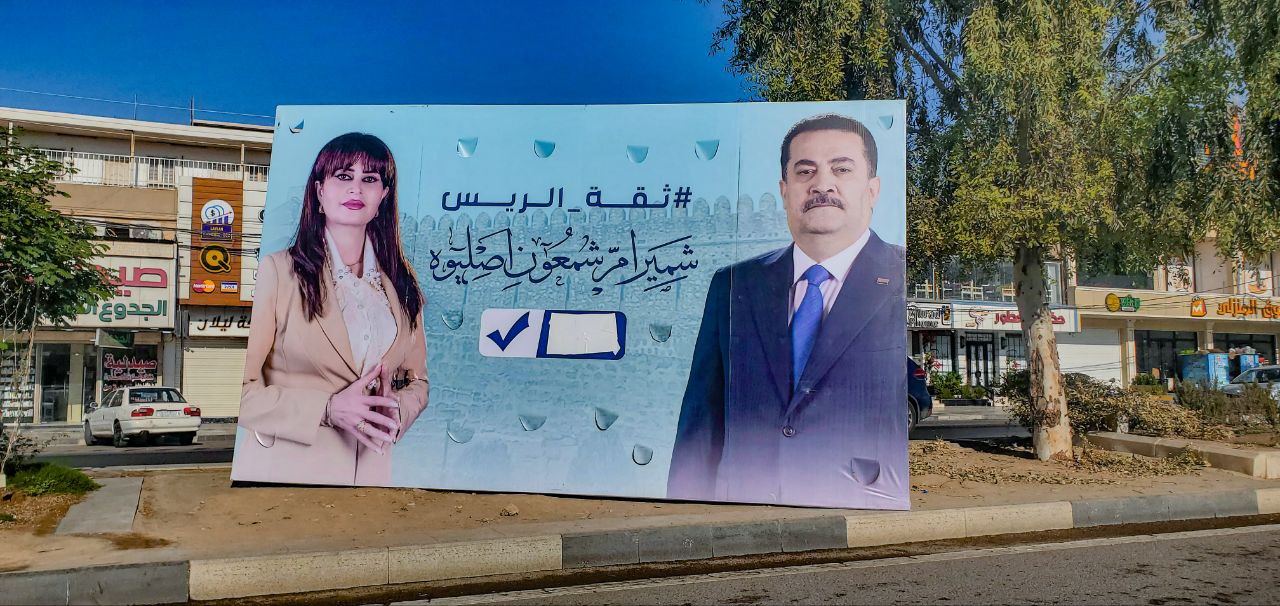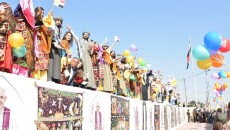Discontent is growing among Iraq’s Christian community. Many cite years of marginalization, poor services, and doubts over whether their parliamentary quota seats still truly represent them.
Out of 329 total seats in the Iraqi Parliament, five are reserved for Christians, distributed across Baghdad, Nineveh, Kirkuk, Dohuk, and Erbil. Yet, 19 candidates are now vying for these limited positions, most of them from Babylon Movement.
A campaign poster in Kirkuk has sparked attention: it features a Christian woman running as an independent—but beside her photo is that of Prime Minister Mohammed Shia al-Sudani.
“The quota seats are no longer in the hands of true Christians,” said Nawzad Polus Hakim, head of the Suraya Foundation for Culture and Media. “These seats have been divided among Kurds, Shia Arabs, and Sunni Arabs. Instead of defending Christian rights, they now serve the interests of others.”
Hakim predicts voter turnout among Christians will fall compared to previous elections—something he fears will further weaken their influence.
According to KirkukNow, the 19 Christian candidates include eight women. For the November 11 parliamentary elections, the candidates are spread as follows: seven in Kirkuk, four in Erbil, four in Dohuk, two in Baghdad, and two in Nineveh.
In the historic Nineveh Plains town of Alqosh, 67-year-old Nizar Hakim voiced frustration over local neglect. “Alqosh is ancient. We should have an institute here so our students don’t have to travel to Dohuk or Nineveh,” he said. “We also lack hospitals and basic services. But despite everything, Christians must still vote.”
In the 2021 elections, Iraq’s election law designated the entire country as one constituency for Christian quota seats. This means anyone—regardless of religion or ethnicity—can vote for a Christian candidate anywhere in Iraq. While 34 Christian candidates received over 118,000 votes that year, the five available seats were ultimately decided by just 51,000 votes.
Nizar insists that disillusionment shouldn’t stop Christians from participating. “We cannot give up our right to vote or underestimate the importance of the five seats,” he said.
Among the current contenders, the Babylon Movement—led by Rayan al-Kaldani, commander of the Babylon Brigades aligned with the Popular Mobilization Forces PMF—has nominated five candidates, one for each quota seat. The party secured four seats in 2021, representing Baghdad, Kirkuk, Dohuk, and Nineveh.
Other candidates are running as independents, including Sami Oshana, a former district director in Dohuk. “I’m funding my own campaign and personally visiting Christian households to ask for their support,” he said. “Every Christian’s vote matters. We must stand together to defend our rights.”
Once numbering 1.5 million in 2003, Iraq’s Christian population has now dwindled to about 250,000, according to the Iraqi High Commission for Human Rights. Christianity remains Iraq’s second-largest religion and is recognized by the constitution, with Syriac as its language.
The community suffered immense losses after the extremist militants of the Islamic State of Iraq and Syria ISIS seized Nineveh in 2014, forcing Christians to choose between conversion, taxation, or exile. Most fled, leaving behind destroyed churches and centuries-old heritage.






